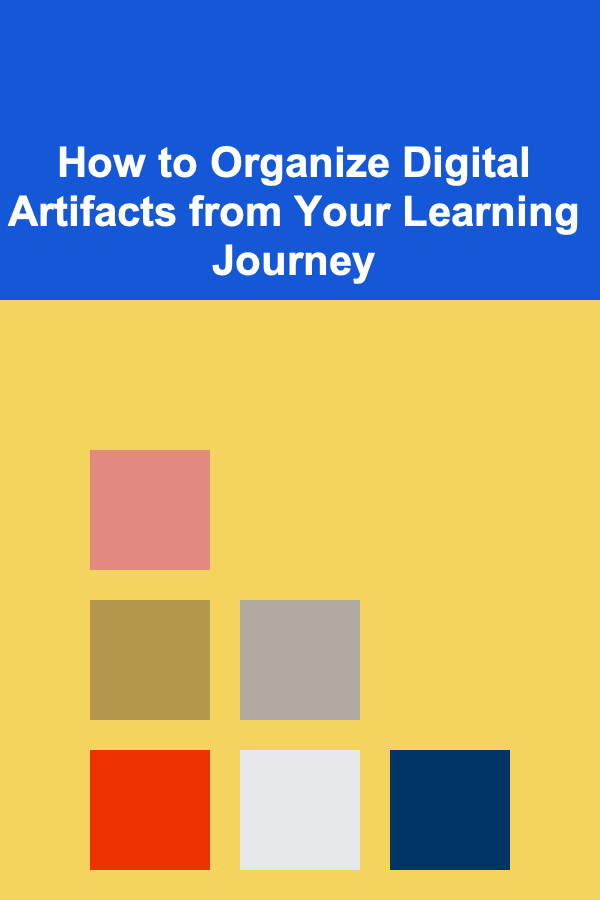
How to Build Your Crossword Vocabulary
ebook include PDF & Audio bundle (Micro Guide)
$12.99$10.99
Limited Time Offer! Order within the next:

Crossword puzzles have long been a favorite pastime for many. Whether you're solving them casually in the newspaper or obsessively in a competition setting, one thing is clear: success often depends on having a broad and diverse vocabulary. For both beginners and experienced solvers alike, building your crossword vocabulary can be the key to cracking those challenging puzzles and increasing your solving speed. But how do you go about building this specialized vocabulary?
In this article, we will explore the strategies and techniques that can help you enhance your crossword vocabulary. We'll cover methods for increasing your knowledge of common crossword words, understanding the nuances of puzzle clues, and fine-tuning your solving skills. Additionally, we'll discuss some practical tips and resources to help you along the way.
Understand the Structure of Crossword Puzzles
Before diving into vocabulary-building strategies, it's essential to understand the basic structure of a crossword puzzle. Most crossword puzzles have clues organized into two categories: Across and Down. Each clue is designed to correspond with a specific word or phrase, and the answers must fit neatly within the grid, intersecting with other words. The key to mastering crossword puzzles lies in understanding the common patterns and conventions used by puzzle constructors.
Common Crossword Conventions:
- Abbreviations: Crossword constructors frequently use abbreviations for common phrases, names, and even entire words. For example, "apt." can mean "apartment" or "appropriate," and "pro" can mean "professional" or "in favor of."
- Foreign Words: Puzzles often use words from other languages, particularly Latin, French, and Italian. Words like "adieu," "et al.," or "café" are frequent in crosswords.
- Common Prefixes and Suffixes: Many crossword clues involve common prefixes and suffixes like "un-," "re-," "-ly," or "-er." Recognizing these will help you understand potential solutions.
- Word Length and Crossings: The number of spaces in a word is a helpful guide for identifying possible solutions. Additionally, intersecting words can give you clues about letters that should go into your answer.
The better you understand these conventions, the easier it will be to recognize the kinds of words crossword puzzle creators tend to use, and the more prepared you'll be when facing a new puzzle.
Focus on High-Frequency Words
One of the first steps to building your crossword vocabulary is becoming familiar with high-frequency words that appear in puzzles regularly. Crossword constructors tend to favor certain words because they fit well in various grids and have versatile letter combinations. These high-frequency words often come up in clues for everyday objects, actions, or common abbreviations.
Start with Short Words
Many crossword answers are short, often consisting of 3-5 letters. Some of these shorter words show up across many different puzzles, and recognizing them can greatly improve your solving skills. Common examples include:
- ELOP (to run away and get married)
- ERA (a period of time)
- EGO (a person's sense of self)
- OAR (a paddle used in rowing)
- SAG (to droop or sink)
- ESS (the letter S)
- EAT (to consume food)
Focusing on these shorter, common words will help you make quick progress in the puzzle and build confidence.
Increase Your Exposure to Long Words
Longer words, particularly those with more obscure meanings, can be trickier but are often the key to solving more difficult puzzles. These words might not appear in every crossword, but when they do, knowing them will give you a significant advantage. Some long words that frequently appear in crosswords include:
- EPHEMERAL (lasting for a very short time)
- ETERNAL (timeless or unending)
- RHAPSODY (an enthusiastic expression of feeling)
- PRODIGY (a young person with exceptional talent)
- GASTRONOMY (the art of cooking and eating good food)
To build familiarity with long words, try to work your way through a variety of crossword puzzles, paying particular attention to the longest words you encounter. Take note of any unfamiliar words and make an effort to remember their definitions and meanings.
Expand Your Knowledge of Specific Categories
Crossword puzzles often include words from specific categories or themes. By familiarizing yourself with certain subject areas, you can prepare for clues that might otherwise stump you. Whether it's history, science, or popular culture, a well-rounded crossword vocabulary will help you navigate a wide range of clues.
Categories to Focus On:
-
Geography: Locations, countries, rivers, and cities often appear as crossword answers. Learn the names of countries, capitals, famous landmarks, and bodies of water. Examples include:
- GIZA (Egyptian city near the pyramids)
- URALS (mountain range in Russia)
- ASIA (continent)
- NILE (longest river in the world)
-
Literature: Many crossword clues reference authors, characters, and literary terms. Make sure to familiarize yourself with common literary figures and works. For example:
- HOMER (Greek poet, author of the "Iliad" and the "Odyssey")
- DICKENS (Charles Dickens, famous English writer)
- EPIC (a long poem that tells a story)
-
History and Politics: Historical events and political figures are frequently mentioned in crosswords. Names of famous leaders, wars, and treaties can help you recognize answers. Example words include:
- ROMAN (related to ancient Rome)
- CARTER (former U.S. president Jimmy Carter)
- REIGN (the period during which a monarch rules)
-
Science and Technology: The world of science is rich with jargon and terminology that often appears in crosswords. Learning the names of elements, famous scientists, and scientific theories will help you become familiar with relevant crossword vocabulary. Some examples are:
- ATOM (the basic unit of matter)
- DNA (deoxyribonucleic acid)
- TESSERACT (a four-dimensional cube in mathematics)
-
Pop Culture: Crossword puzzles often reference movies, TV shows, musicians, and celebrities. Staying up to date with pop culture will give you a competitive edge. For example:
- ELVIS (rock 'n' roll legend Elvis Presley)
- GAGA (Lady Gaga, pop star)
- MARVEL (referring to the Marvel comics universe)
By focusing on these specific categories, you can expand your vocabulary in areas where crossword puzzles frequently draw from.
Learn to Recognize Common Clue Formats
Another way to build your crossword vocabulary is to become familiar with the way crossword constructors frame their clues. Understanding clue formats helps you anticipate the answers more easily, even when the word is unfamiliar. These formats often rely on puns, wordplay, and definitions that may not be immediately obvious.
Common Clue Types:
- Straightforward Definitions : Clues that directly define the answer, such as "Capital of France" for PARIS or "Popular fruit" for APPLE.
- Anagrams : Some clues involve anagramming letters to form the answer. Clues like "Mixed up sound" could lead to NOISE or "Former lover" could be EX.
- Wordplay and Puns: Crossword constructors often use wordplay to mislead or amuse solvers. For example, a clue like "Tiny part" could be "IOTA" (a very small amount), or "First off, boss" could be "CEO" (where "boss" refers to a corporate leader).
- Fill-in-the-Blank Clues : These clues provide part of the answer, and you must figure out the missing letters. For example, "__ you, man!" could lead to THANK.
The more you practice solving puzzles, the more you'll become attuned to these common clue formats, which will help you recognize answers even when you don't know all the vocabulary yet.
Use Crossword Puzzle Solving Tools
While it's important to build your vocabulary through practice and study, it's also okay to use crossword-solving tools to improve your skills. There are many online resources that can help you identify answers when you're stuck, and these tools can be a valuable part of the learning process.
Helpful Tools:
- Crossword Dictionaries: Many crossword dictionaries are available online or as apps. These specialized dictionaries provide lists of words that are commonly used in crossword puzzles. Having one of these dictionaries on hand can help you expand your vocabulary more quickly.
- Anagram Solvers: Anagram solvers can help you find possible answers when you encounter a tricky wordplay clue. By inputting the scrambled letters, you can generate a list of possible solutions.
- Crossword Puzzle Websites : Websites like The New York Times Crossword and Cruciverb offer access to an archive of past puzzles, allowing you to practice regularly. They also include hints and solutions that can help you improve.
- Apps and Games : Many crossword apps, such as NYT Crossword or Wordscapes, offer daily puzzles to help you build your vocabulary and keep your skills sharp.
While using these tools is useful, it's important not to rely too heavily on them. The goal is to learn new words and concepts, not just solve the puzzle quickly.
Regular Practice is Key
Building a strong crossword vocabulary requires consistent practice. The more puzzles you solve, the more words and clues you'll encounter, and the better you'll become at recognizing answers and solving strategies.
Tips for Effective Practice:
- Solve Puzzles Daily: Try to complete at least one crossword puzzle per day. This will help you gradually build your vocabulary and improve your solving speed.
- Challenge Yourself: Start with easier puzzles and work your way up to more challenging ones. As your vocabulary improves, you'll find yourself solving puzzles faster and with more confidence.
- Keep a Word Journal: When you come across a word you don't know, write it down and look up its definition. This can help reinforce the word in your memory.
- Solve with Others: Solving puzzles with a partner can be an excellent way to learn. Collaborating with someone else allows you to exchange vocabulary tips and solve difficult clues together.
Conclusion
Building your crossword vocabulary is an ongoing process that requires practice, patience, and a strategic approach. By understanding common crossword conventions, focusing on high-frequency words, expanding your knowledge of specific categories, and regularly solving puzzles, you can gradually enhance your vocabulary and improve your crossword-solving skills. Remember, solving crossword puzzles is not just about memorizing words---it's about learning to think creatively and strategically. With consistent effort, you'll find yourself becoming a crossword master in no time.
Reading More From Our Other Websites
- [Personal Care Tips 101] How to Incorporate Toner into Your Travel Skincare Kit
- [Home Cleaning 101] How to Clean Your Home's Floors with Eco-Friendly Products
- [Personal Investment 101] Ways to Make Passive Income with Deep Learning APIs
- [Organization Tip 101] The Importance of Proper Lighting for Low Vision Home Improvements
- [Metal Stamping Tip 101] Future‑Proofing Your Stamping Line: Leveraging Advanced CAD Simulations for Faster Time‑to‑Market
- [Organization Tip 101] How to Implement a Capsule Wardrobe System
- [Home Renovating 101] How to Renovate Your Home Without Losing Its Character
- [Organization Tip 101] What Are the Top Tips for Organizing Schedules and Appointments?
- [Home Lighting 101] How to Incorporate Smart Lighting for a Convenient Home
- [Home Maintenance 101] How to Maintain Your Pond and Water Features Year-Round

How to Create a Cleaning Schedule That Works for You
Read More
How to Organize Digital Artifacts from Your Learning Journey
Read More
How To Leverage Memes and Trends for Engagement
Read More
Training for a Marathon (or Half-Marathon): A Comprehensive Guide
Read More
Building Your Essential Home Tool Kit for Emergencies
Read More
10 Tips for First-Time Investors Working with an Advisor
Read MoreOther Products

How to Create a Cleaning Schedule That Works for You
Read More
How to Organize Digital Artifacts from Your Learning Journey
Read More
How To Leverage Memes and Trends for Engagement
Read More
Training for a Marathon (or Half-Marathon): A Comprehensive Guide
Read More
Building Your Essential Home Tool Kit for Emergencies
Read More